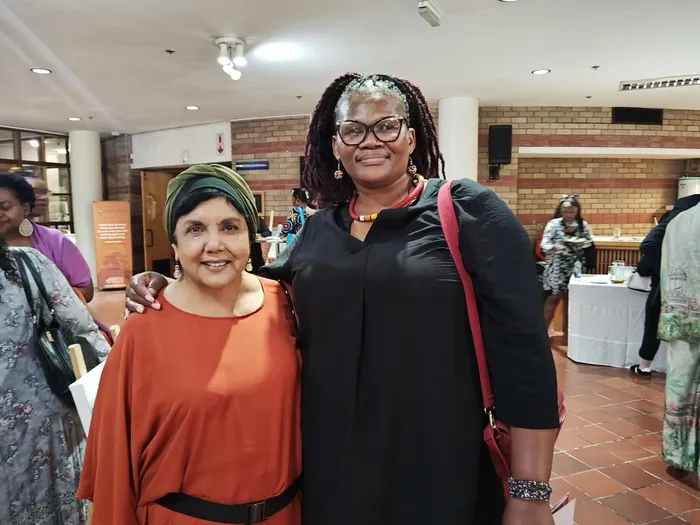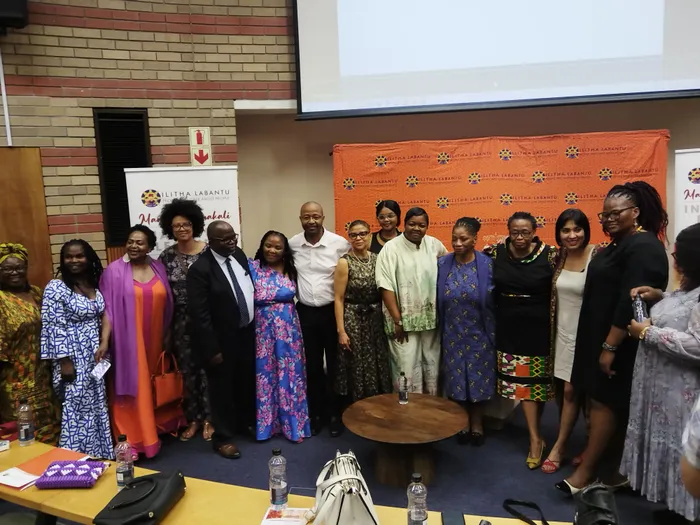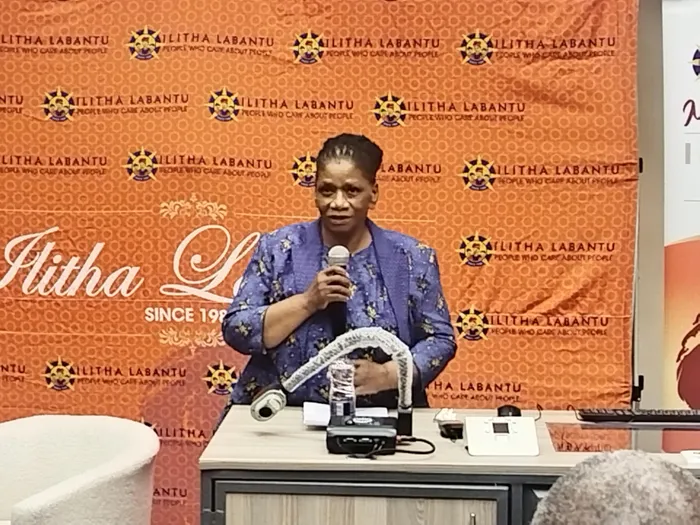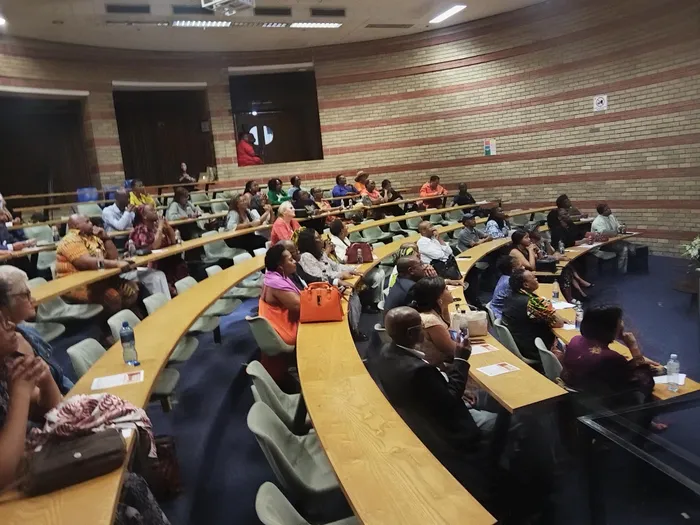Ilitha Labantu Celebrates Mandisa Monakali's Legacy at Inaugural Lecture

Former Journalist and an author Zubeida Jaffer and Doctor Thozama April-Maduma from the University of Fort Hare were part of the lecture.
Image: Phiri Cawe

Ilitha Labantu board members and those who came to support the Mandisa Monakali Inaugural Lecture.
Image: Phiri Cawe

Former National Assembly speaker, Thandi Modise, was a guest speaker at the Ilitha Labantu Inaugural Lecture held at the University of the Western Cape on Tuesday.
Image: Phiri Cawe

Ilitha Labantu, in partnership with the Desmond Tutu Centre for Religion and Social Justice at the University of the Western Cape, hosted the Mandisa Monakali Inaugural Lecture, which forms part of the16 Days of Activism for No Violence Against Women and Children campaign.
Image: Phiri Cawe
As the 16 Days of Activism for No Violence Against Women and Children kicked off this week, Ilitha Labantu, in partnership with the Desmond Tutu Centre for Religion and Social Justice at the University of the Western Cape, hosted the Mandisa Monakali Inaugural Lecture on Tuesday, November 25.
The annual lecture honours the life and legacy of Mam Mandisa Monakali, the founder and president of Ilitha Labantu, whose fearless activism and lifelong dedication to justice have left a profound impact on the fight against violence and the advancement of the rights and dignity of women and children.
Speaking after the event, Ms Monakali’s daughter and executive director of Ilitha Labantu, Ella Mangisa, said the lecture served as a space for reflection and renewal, carrying forward her mother’s vision of a world rooted in justice, equality, and compassion - a world free from violence, where women and children live in safety and dignity.
“She played a huge role over the past 30-odd years. This lecture highlights the journey we have taken together in peacebuilding and human rights advocacy, ensuring that the voices of women are heard in the struggle for human rights,” she said.
Speaker after speaker affirmed that Mam Mandisa’s work extended far beyond activism. She was described as a powerful voice for women and children at every level - from township communities to national and international platforms. She challenged institutions, influenced policy, and ensured that the lived experiences of African women and children shaped the global human rights discourse.
Guest speaker and former National Assembly speaker Thandi Modise praised Ma-Monakali as a formidable leader whose influence reached across the continent and beyond. She urged young women to follow the example set by senior leaders like Mandisa Monakali: to be strong, intelligent, and unwilling to be silenced or bullied.
“We need to start growing a healthy South Africa. In Mandisa’s name, we must open space for women and raise children who respect one another. She always insisted on that. I hope her legacy will someday live on through school,” she said.
Ms Modise also commended Mam Mandisa’s sterling contributions at the Beijing Conference and in Rwanda, Kenya, and Botswana, where women gathered to confront oppression and advocate for gender justice.
In her closing remarks, the chairperson of the Ilitha Labantu board, Nkhabele Marumo, emphasised that the lecture was not merely an event but an ongoing project. She lauded the Monakali family for their visionary leadership and urged the organisation to remain strong.
“Ilitha Labantu must never die. It must continue saving the lives of people in our townships. We must keep Ms Monakali’s legacy alive,” she said.

Don't Look Away
Image: Supplied
Related Topics: